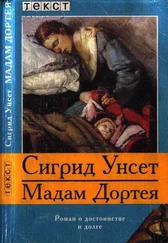Sometime—he cannot say exactly how long, maybe a year—sometime after he’d walked in on his parents lying naked, he walked in on them fighting and heard his mother say, “We never fuck anymore anyway, what the fuck do you care?” When they saw him they tried to explain, but only halfheartedly. And it was this halfheartedness that had enraged him, moving him to perhaps his first real effort at sarcasm. “Sure. I know. You guys were just rehearsing for a play.”
No one had tried to stop him as he turned on his heel. He remembers his cold satisfaction, leaving them speechless behind him. He remembers thinking, Now they’ll know how much I’ve grown up.
But he is not sure anymore if in fact it was his mother he heard that day. Maybe it was his father. This has become a familiar problem. Cole gets mixed up. He is never completely sure of anything he remembers anymore. He was told that after his fever broke he did not even remember his own name. It wasn’t exactly amnesia, but the illness had damaged his brain. He was not the only one to whom this had happened. It happened to many other people as well. It happened to the president of the United States.
Even now there are important things Cole knows he should remember that he cannot remember at all. He has resigned himself to perhaps never remembering them again. He knows he is lucky to know his name, lucky not to have worse damage, lucky to be alive. Though he wishes ardently to learn not to be afraid to die, he cannot help being glad—even if it sometimes makes him feel base—that he survived.
It was his mother, he decides. Both his parents used swear words all the time, but it was more like his mother to swear twice in one sentence.
Pastor Wyatt uses a cream that makes his hands smell like cookie dough.
Cole has nightmares. Some contraption is crushing him, some ferocious animal is about to devour him, an object he cannot live without is lost or taken away. He cries out, doggy-paddling in the dark. Then there is light, impossibly bright, stabbing his eyes. It is always Pastor Wyatt who comes, never Tracy. Because Tracy never says anything about these nights, Cole thinks maybe she sleeps right through his screams and Pastor Wyatt getting out of bed. He knows married people don’t always tell each other everything.
Pastor Wyatt sits with him for a while, stroking his head, praying with him. Jesus is here, he croons. But it is the smell of those hands that soothes Cole most.
In the upstairs bathroom one day, he uncaps every bottle and jar till he finds it. The cookie-dough smell is vanilla. It is one of his secrets, how much he loves that smell, and how he sometimes goes into the bathroom just to take a deep whiff. He believes that if he tells anyone, the smell won’t have the same effect anymore. It is a secret also because he thinks of it as a girly thing. He pictures Les Wilbur and Peter Druzzi jeering.
Les Wilbur. Peter Druzzi. Cole wonders about them, as he wonders about all the other kids from school. He thinks he remembers that Les was sick, but it could have been Pete. Or it could have been both of them. He wonders if they have passed.
Died. Say died.
Ruthie Lind has passed, that he knows for sure. It happened before Cole himself got sick. Ruthie was one of the first to pass. Jade Korsky? He doesn’t know. He and Jade hadn’t been in the same school anymore. The closet, the cherry cough drop—all that was back in the city. Ages ago. When was the last time he’d played hide-and-seek?
His mother and his father, both of whom were afraid of dying, have passed.
The best way to remember them is to remember the good about them.
He knows that Pastor Wyatt is right. He does not know why it is so hard.
ONE OF HIS BIGGEST SECRETS IS THAT he does not like Tracy. It is a guilty secret, because Tracy has always been nice to him. She cleans his room and washes his clothes and asks him every day what he’d like for lunch. She gives him only light chores to do and praises him for the smallest things, like helping to load the dishwasher. (“What a peach!”)
Once, when he accidentally breaks a ceramic bunny he knows she loves, she looks crestfallen. But before he can apologize, she says, “Jesus hates it when we care too much about some silly old thang .”
Tracy is Pastor Wyatt’s second wife. She calls him WyWy, which embarrasses Cole, though not as much as her calling him Daddy, or DaDa, as she also sometimes does.
Pastor Wyatt tells Cole to call him PW.
Cole knows that Tracy is younger than PW, but he does not know how much. She will not say her age. Certainly she is too old to be saying DaDa. But she often talks more like a child than like a grown-up. PW drops his watch and she says, “Did it get hurt?” To her an alarm clock is a “warum.” Her favorite letter is b. She says “bamburger” and “bumbrella.”
Cole finds it strange that PW laughs at Tracy’s mistakes but never corrects them. “We were going full bottle.” “The house was infected with termites.”
Why doesn’t he correct her?
Cole knows Tracy doesn’t have children not because she didn’t want any (“It was my dream since I had my first doll”), but because of a kind of cancer she had before she was married. When he asks if the cancer treatments made her go bald, she looks startled, but she tells him. All her straight blond hair fell out and grew back the way it is now, chestnut and wavy. She tells him also that because she lost so much weight when she was sick, even some people who’d known her all her life would walk right past her without recognizing her.
Cole would have thought that having cancer—which he knows can always come back and kill you even if it didn’t the first time—and not having the thing you most want in life would keep a person down. But though at times he sees PW with a faraway expression on his face that could be called at least partly sad, Tracy always looks as if everything is going her way.
Sometimes she accuses herself of being negative, or she apologizes for getting up “on the bad side of the bed.” Cole never knows what she’s talking about. Even when the subject is something she hates—abortion, unnatural marriage, the elbow bump—Tracy does not seem particularly angry or upset. She’ll bunch her lips or shudder or shake her head—“If that isn’t enough to make you spit”—but in the very next breath she’ll say, “How about yegg salad on rye fer yer lunch?”
He thinks of his mother and the pills she took every day to make her less negative. There were other pills she took to make her less afraid, especially if she had to get on a plane, or to help her sleep. When she did not get enough sleep, almost anything could make her cry. A dead robin on the lawn . . .
His father didn’t take any pills and Cole had never seen him cry, but he can’t remember a time when he didn’t have to watch out for his father’s moods. A bad mood often had something to do with work. His father and his mother were both overworked. One time he heard his mother tell someone on the phone, “I have to work as hard as she does and I’ve got a kid. Compared to mine, her life’s a fucking piece of cake.” Too much work. But also, as Cole understood it, fear of not having enough work. Or of losing the work that they had.
The people his parents disliked most were people who cared about money. But from the way his parents talked, money was the most important thing to them, too. He remembers the time their accountant made a mistake and they ended up owing a lot of taxes. When the accountant called to break the news, his father had started screaming at him, and when the accountant hung up on him, he threw his cell across the room. For days after, the house was like a tomb.
Читать дальше













